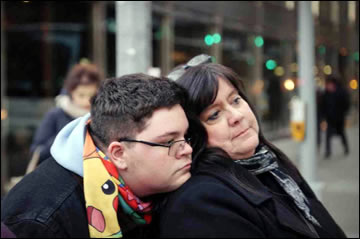News & Commentary
Jul 12, 2017
Guarantee the Vote
Voting, like freedom of speech and religion, is a fundamental right that government cannot deny. It is time we made clear that the vote is the essential currency of democracy, and it belongs to the people.
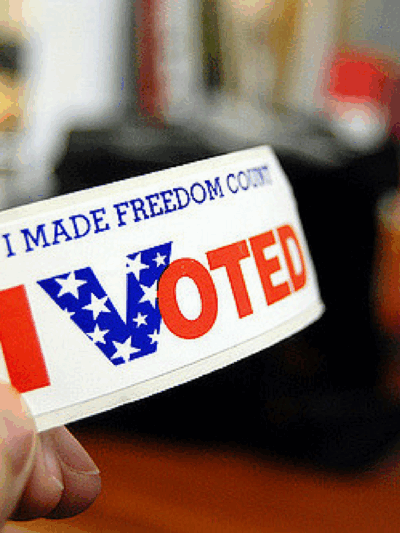
Jul 06, 2017
Seven Questions For Virginia’s Attorney General Candidates
As Virginia voters prepare for the fall elections for our three statewide offices, it’s important to focus some attention on the race for the job of attorney general. Here are some questions to ask that will help you decide whom to hire as Virginia’s lawyer when you enter the voting booth on Nov. 7.
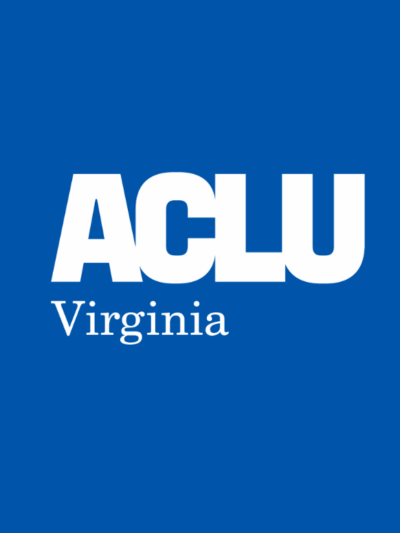
Apr 06, 2017
Gavin Grimm Speaks in Congress on Transgender Rights Issues
On April 6, 2017, our client Gavin Grimm attended the "Civil Rights Under the Trump Administration-The First 100 Days" forum held by members of the House of Representatives to speak about his case and the fight for transgender rights, which is gaining momentum across the nation.
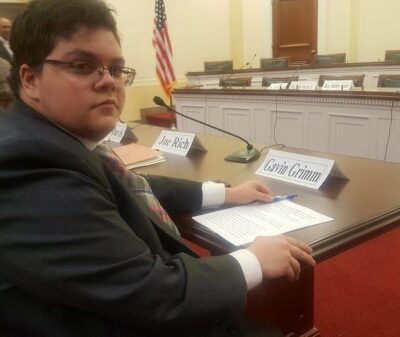
Mar 15, 2017
WATCH: Our Executive Director Claire Guthrie Gastañaga's Remarks in response to U.S Attorney General Jeff Sessions' Visit to Richmond
On Wednesday, March 15, U.S. Attorney General Jeff Sessions met with local, state, and federal law enforcement representatives in Richmond on violent crime and public safety. Our Executive Director Claire Guthrie Gastañaga addressed a crowd of protesters, who showed up to oppose the Trump administration's unconstitutional policies, in front of the SunTrust Center, where the meeting took place. You can watch her address here:
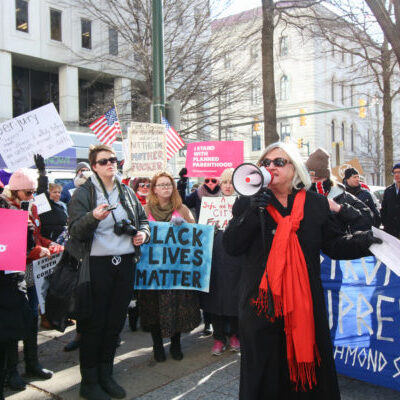
Mar 02, 2017
WATCH: 2017 General Assembly Post-Session Wrap-Up
Please re-watch our Facebook Live review of the 2017 General Assembly session regarding civil rights and civil liberties in Virginia. In this video, we discussed major bills that we'd like Gov. Terry McAuliffe to veto and explained why those bills, which concern free speech, immigrants' rights, LGBT rights, and voting rights, are harmful to civil liberties in Virginia.

Feb 20, 2017
ACLU-VA Urges Governor to Veto Anti-Immigrant House Bill 1468
In a letter today, the ACLU of Virginia has urged Gov. Terry McAuliffe to veto House Bill 1468. Patroned by Del. Robert Marshall (R-Fairfax), HB1468 is an unconstitutional, confusing "message" bill. Virginia already has some of the toughest laws regarding compliance with federal immigration law. Everyone's status is check when arrested and there is a presumption against bail for immigrants with detainers who have been accused of serious crimes. As well, federal courts have already declared that, absent a criminal warrant, people cannot be held in local jails for violation of civil immigration law. This bill also creates a conflict between a judge's order to release someone on bond for a minor crime and the local jail official's refusal to release that person except to federal officials. It is not the job of sheriffs and jail officials to enforce immigration law.
Feb 13, 2017
This Virginia County Denied a Necessary Permit to Build a Mosque, and It Doesn’t Pass the Smell Test
Since 1992, the county approved 25 “pump and haul” permits. The only one it denied was for a mosque.By Rebecca Guterman Paralegal, ACLU national
Stay Informed
Sign up to be the first to hear about how to take action.
By completing this form, I agree to receive occasional emails per the terms of the ACLU’s privacy statement.
By completing this form, I agree to receive occasional emails per the terms of the ACLU’s privacy statement.

